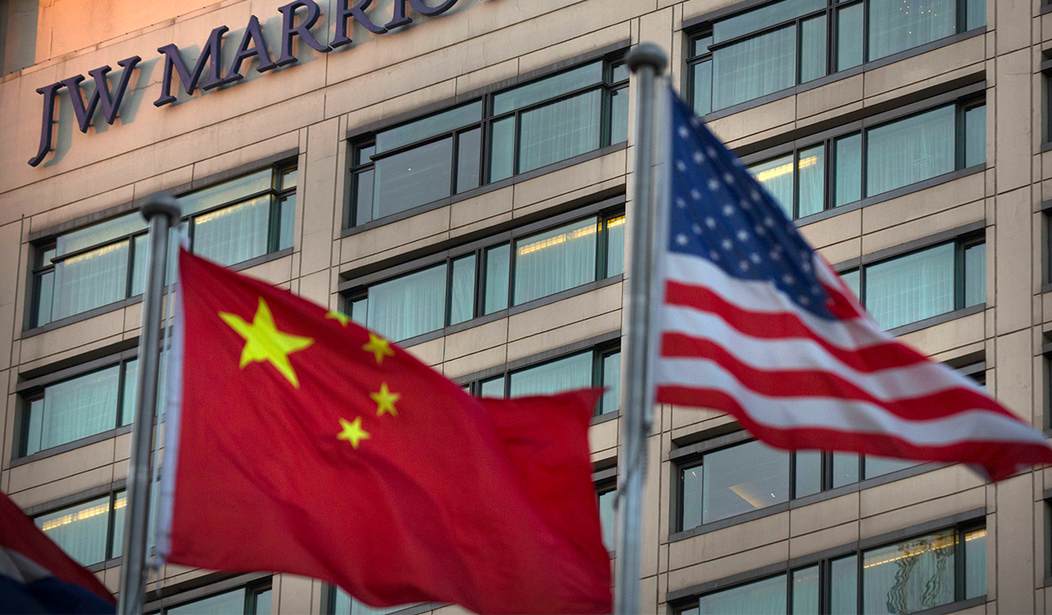Most Americans value their right to privacy just as much as their right to free speech. The United States is in a “Great Race,” battling China to be the leader in technological development, and our values regarding privacy and free speech are at the center of the fight.
Regrettably, antitrust legislation currently being considered in Congress threatens American values on privacy and free speech. Indeed, there are multiple pieces of misguided antitrust legislation currently in front of Congress that pose a threat to our national security, privacy, and technological edge.
Antitrust laws are meant to protect American consumers and regulate how companies operate. Yet the proposed laws in front of Congress would instead harm American consumers and bolster Chinese interests. Moreover, antitrust laws would handcuff American innovators and hinder American technology companies’ ability to challenge China’s influence on global technology.
Make no mistake about it: Chinese officials are looking to position their country as the global technology leader and to use that position to extend their influence and values throughout the world. Earlier this year, Secretary of State Blinken warned that Chinese officials are going to great lengths to increase the world’s dependence on their country’s technology. He speaks of a Chinese government that has become “more repressive at home and more aggressive abroad,” as the government has ramped up its mass surveillance and data collection efforts. The Chinese government is technologically advanced, and its rapid advancements pose a serious threat to freedom, safety, and privacy across the world.
One particularly troubling bill before Congress would directly attack certain American companies and innovators. Meanwhile, Chinese companies would not be subject to this legislation and would continue to operate unchecked, accessing Americans’ data. Meanwhile Chinese companies, many with ties to the Chinese government, have been accused of stealing American’s data – everything from our personal healthcare and financial data to military technologies. In fact, reports have indicated that China has been stealing sensitive information for years, “Beginning around 2014, a host of American organizations that store personal identifying information have been hacked, with either the government or major private cybersecurity firms identifying China's Ministry of State Security as the culprit each time.” The proposed antitrust legislation handcuffs America’s tech companies which act as a strong line of defense against Chinese companies attempting to steal Americans’ data. Without the protection by our tech companies, Chinese companies can expand these alarming efforts to collect our data unchecked.
Recommended
People who understand the importance of the battle with China for technological influence have spoken in opposition of antitrust legislation currently before Congress. For example, Frances Townsend, former Homeland Security Advisor under President George W. Bush, recently stated, “If our leaders don’t change course, American citizens and businesses will become more dependent on authoritarian regimes for our technology.” The legislation is drawing bipartisan criticism, with Sen. John Cornyn (R-TX) and Sen. Dianne Feinstein (D-CA) both having raised concerns.
While some members of Congress are endeavoring to dismantle our technology companies, to bar them from doing future business, and, most damning, to compel them to publicize Americans’ data and some of their intellectual property to competitors, Chinese officials are keeping their eyes on the ball and pursuing a comprehensive agenda to dominate technologies of the future. In 2020, China’s Ministry of Industry and Information Technology announced plans to contribute $1.4 trillion in investment over the next five years. Indeed, China’s 14th Five-Year Plan declares it a national security objective for China to dominate next-generation technologies.
The Chinese are already equipped with data from American citizens that they have stolen or accessed with their own technologies through state entities, and now Congress is maneuvering to hand over even more Americans’ data in the name of breaking up big technology companies. Bill Evanina, former director of the U.S. National Counterintelligence Security Center, estimated that the Chinese government has stolen personally identifiable information of 80% of Americans. Congress needs to understand the current international technology landscape, allow American tech companies to operate without undue barriers, and affirm that American tech companies can be strategic allies in keeping the Chinese in check and in maintaining American technological superiority.
Unfortunately, antitrust legislation before Congress would block any chance that U.S. tech companies would have at stopping China from cornering the market. The United States has not made a habit of punishing innovation, but antitrust legislation currently being considered would do just that, all while giving China a massive lead in technological innovation and jeopardizing America’s privacy protections, national security, and economic relevance.
Americans should call upon their elected representatives in Washington and tell them to oppose antitrust legislation targeting tech companies and instead to do whatever necessary to keep our data secure and ensure we maintain our technology edge.
Dr. Kaiser is the Executive Director of the Trade Alliance to Promote Prosperity (TAPP), a coalition of American companies, workers, trade associations, opinion leaders, lawmakers and policymakers committed to building America’s economy by creating jobs through strategic trade partnerships that will drive growth for decades to come.























Join the conversation as a VIP Member